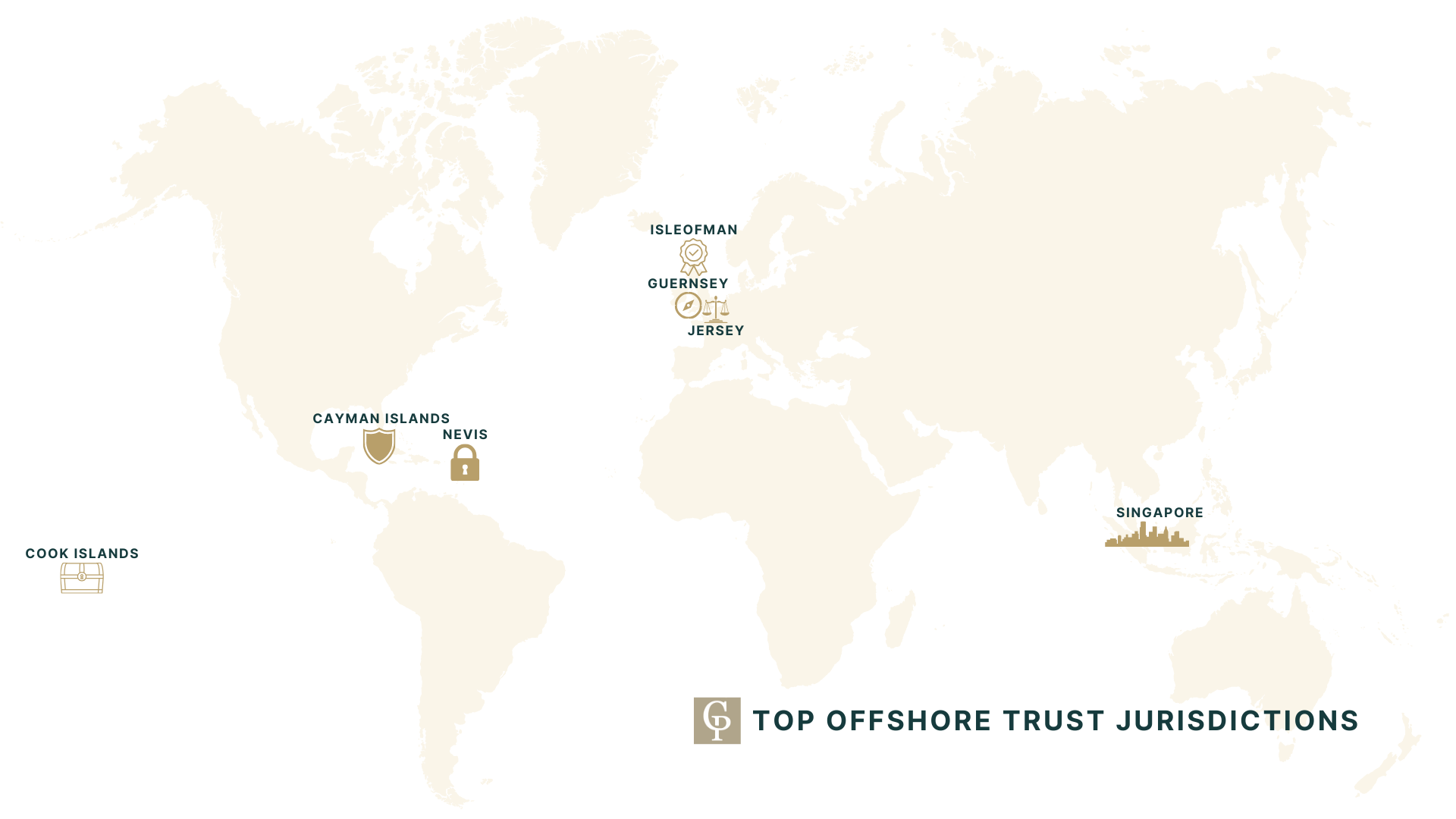When it comes to preserving generational wealth, few strategies are as powerful—or as misunderstood—as offshore trusts for Americans. For high-net-worth individuals (HNWIs) in the United States, these structures are not simply tax tools; they are dynamic legal instruments that offer global asset protection, cross-border estate planning, and strategic tax deferral opportunities.
But here’s the twist: offshore trusts for U.S. citizens aren’t a “set it and forget it” solution. These entities come with high compliance stakes, regulatory complexity, and potential IRS scrutiny. When implemented adequately they could offer an elegant balance of protection, control, and international diversification.
Why do Americans opt for offshore trusts?
At the heart of the strategy is a universal goal: to protect wealth from lawsuits, creditors, probate courts, and increasingly complex US tax rules. Offshore trusts for Americans offer something that domestic tools
often cannot—jurisdictional distance, enhanced privacy, and stronger legal insulation.
estate planning that spans multiple countries—ideal for globally mobile families or those with international assets.

Asset protection, privacy, and tax optimization
A well-structured offshore trust helps shield assets from future claims and lawsuits, particularly in litigious states within the U.S. It also offers ancillary benefits like privacy—a priority for many American
families navigating a world of increasing financial transparency.
From a tax perspective, offshore trusts for U.S. taxpayers can mitigate gift and estate tax exposure and defer income, provided compliance is meticulously maintained. The goal isn’t to evade taxes—it’s to structure wealth strategically within the framework of U.S. and international law.
Tax implications of offshore trusts
This is where things get intricate. Offshore does not mean off the IRS radar.
If the grantor (often a U.S. citizen or resident) establishes and maintains certain powers over the trust, it’s classified as a grantor trust. In these cases, the grantor must file Form 3520 (reporting ownership and contributions) and ensure the trustee files Form 3520-A, detailing the trust’s activities.
Additionally, if the trust holds foreign accounts or financial assets exceeding IRS thresholds, FBAR (FinCEN Form 114) and Form 8938 must also be filed. Non-compliance can trigger steep penalties—often starting at US $10,000 per form, and increasing with time.
For non-grantor offshore trusts, where the trust—not the grantor—is considered the taxpayer, U.S.-source income is reported via Form 1040-NR. American beneficiaries must also report distributions, and in some cases, may be subject to the throwback tax—a punitive regime taxing accumulated income from prior years.
Offshore trusts for US beneficiaries of foreign grantors
In some cases, a non-resident alien (NRA) establishes
a trust for the benefit of a U.S. citizen. Here, the reporting obligations
shift to the American beneficiary, who must report any distributions received
on Form 3520 and include the Foreign Grantor Trust Beneficiary
Statement to avoid mischaracterization or excessive tax.
Strategic Considerations: How advisors add value
Tax advisors and estate planners who understand the nuances of offshore trusts for Americans can add transformative value. It is about more than compliance—it is about coordination, timing, and jurisdictional
fluency. Key strategies include:
- Proactive Distribution Management
Timing distributions carefully helps reduce exposure to the throwback tax while optimizing income tax treatment. - Jurisdiction Selection
Choosing a stable offshore jurisdiction with a strong legal framework and favourable
treaties can enhance both protection and compliance. - Integration with Domestic Entities
Pairing offshore trusts with domestic structures such as LLCs or Qualified Domestic Trusts (QDOTs) offers a layered approach to estate planning and tax mitigation. - Leveraging Tax Treaties
Understanding applicable tax treaties between the U.S. and the trust’s jurisdiction can reduce withholding taxes and prevent double taxation.
Expertise in offshore trusts is vital
Administering offshore trusts for U.S. clients requires deep technical expertise. Errors in form preparation or missed deadlines can lead to audits, penalties, and even reputational damage for clients. Professionals must stay ahead of IRS enforcement trends, such as its ongoing campaign targeting offshore tax non-compliance among high-net-worth individuals.
At the same time, clients must weigh the ongoing costs—trustee fees, annual filings, tax prep—against the benefits of asset protection, international diversification, and legacy planning. For most HNWIs, the calculus favours continuing investment in these sophisticated structures.
Offshore trusts for Americans are not shortcuts—they are highly structured, deeply strategic tools designed for those looking to safeguard wealth across borders and generations. When executed with precision, they provide tax transparency, legal resilience, and peace of mind.
For advisors, the challenge lies in striking the right balance between technical compliance and creative planning. In a global regulatory environment where the stakes are high and the scrutiny even higher, expertise is the new currency.








